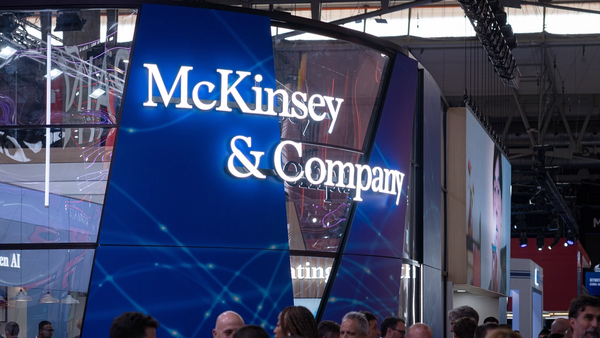Disparities in AI Adoption and Imperatives for Governance
AI at Work: Equity implications of rising adoption

Welcome to a new edition of Revelio Labs’ Research Insights.
This edition is an extension of our last edition on AI at work, where we discussed how AI is affecting the workplace: Which occupations are the most exposed to AI, who is adopting AI, and how AI is affecting the demand for workers. In this edition, we examine a deeper layer of the state of AI at the workplace. We analyze how patterns of AI adoption are redistributing economic gains across the US workforce. We also discuss the increasingly urgent ethical challenges. With companies largely left to self-regulate the technology, concerns about conflicts of interest, transparency, and accountability have grown.
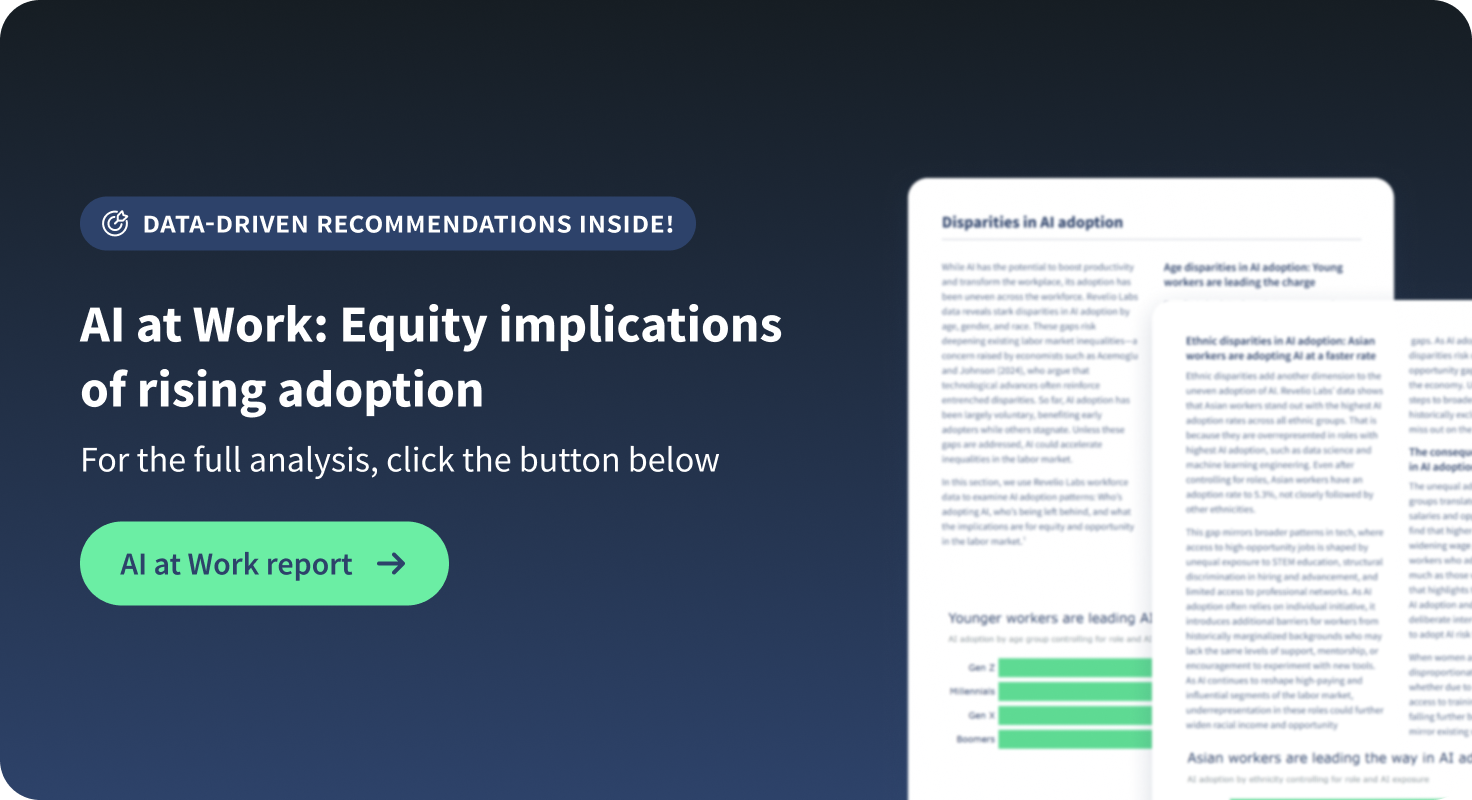
Although workers face low barriers to using AI, as the technology is widely available and easily accessible, AI adoption has been uneven across the workforce. We find stark disparities in AI adoption by age, gender, and race. As AI adoption has so far been largely voluntary, early adopters are set to benefit, while others stagnate.
Younger workers, namely Millennials and Gen Z, are adopting AI tools at significantly higher rates than older cohorts. About 3.3% of Gen Z workers report using AI at work, followed by 3.1% of Millennial workers. These adoption rates compare to just 2.4% of Gen X and 2% of Baby Boomers.

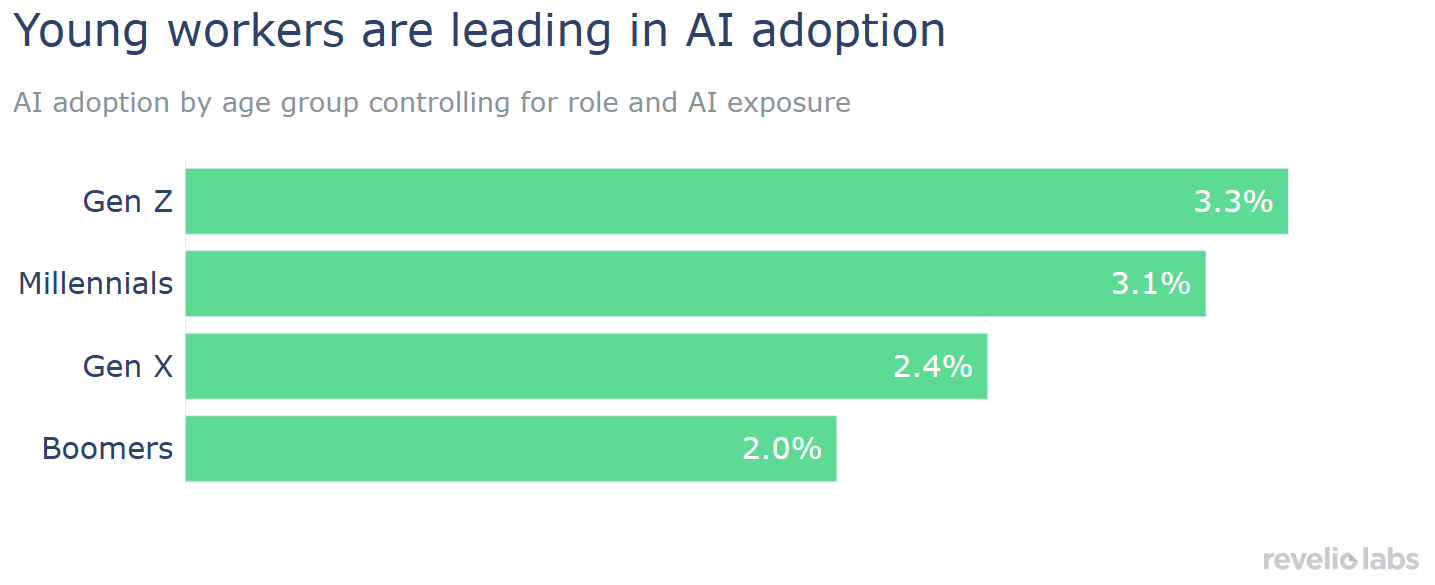
We also find significant gender disparities in AI adoption, where men outpace women in AI adoption within the same roles.

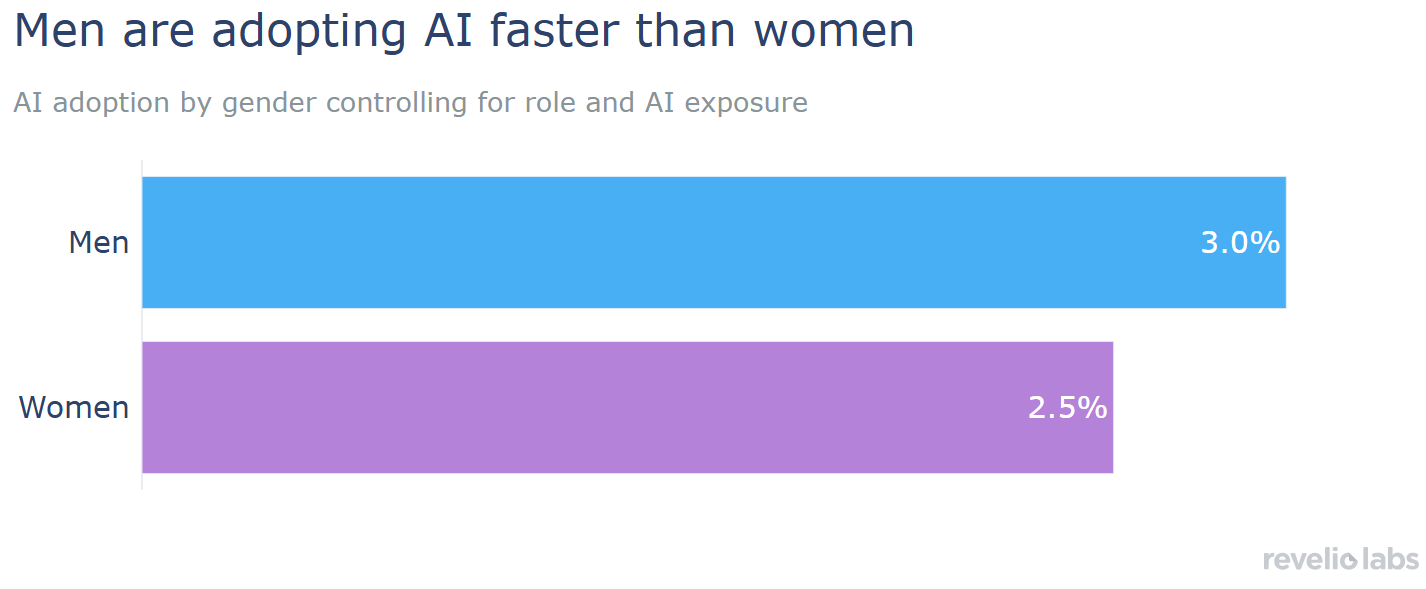
Ethnic disparities add another dimension to the uneven adoption of AI. Revelio Labs’ data shows that Asian workers in the US stand out with the highest AI adoption rates across all ethnic groups. This is largely because they are overrepresented in roles with the highest AI adoption, such as data science and machine learning engineering. But even after controlling for roles, Asian workers adopt AI at a significantly higher rate than other workers.

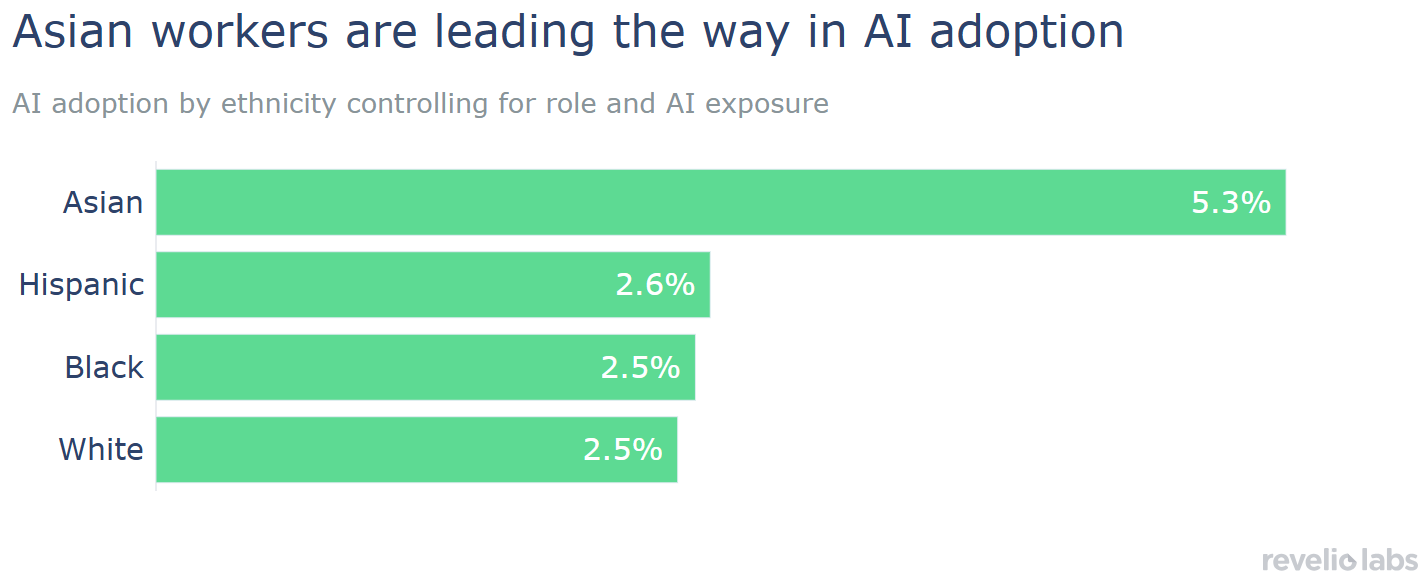
The unequal adoption of AI across demographic groups translates into tangible disparities in salaries and opportunities. We have previously shown that workers who adopt AI earn nearly twice as much as those who don’t. This premium highlights the strong connection between AI adoption and economic mobility. Without deliberate intervention, workers who are slower to adopt AI risk falling further behind.
As AI systems become increasingly embedded not just in the workplace, but also in high-stakes domains like healthcare, policing, and warfare, they raise urgent questions about fairness and transparency. Yet, the responsibility for governing workplace AI largely has largely fallen to the same companies deploying it, despite clear conflicts of interest. Many of these companies have invested heavily in building AI tools, but far less in ethical oversight. AI ethics teams, where they exist, are often sidelined or overruled, as seen in recent high-profile exits from major tech firms. This lack of transparency raises serious risks: Biased algorithms may quietly influence decisions around hiring, performance, and compensation, further amplifying inequality rather than addressing it.

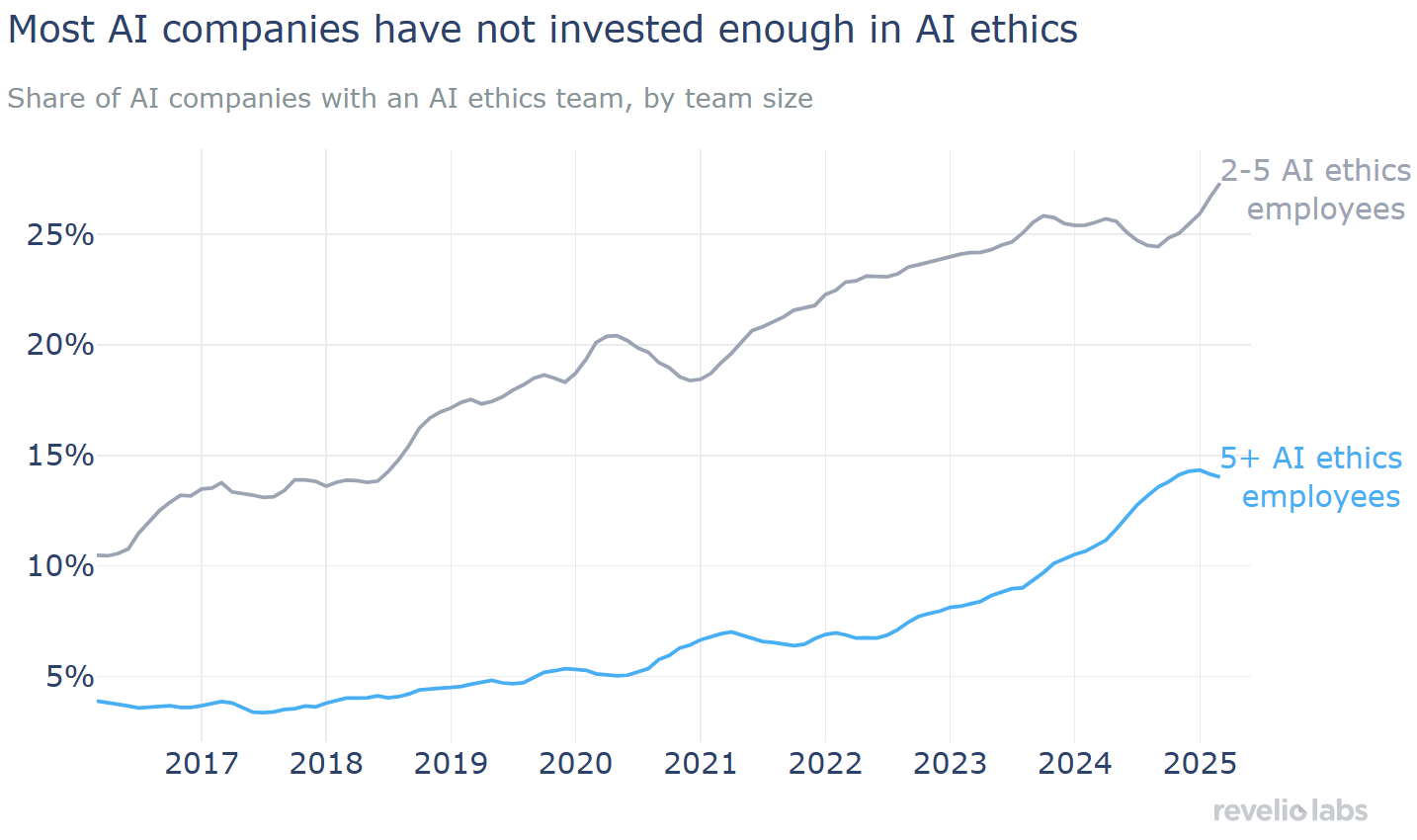
As AI continues to reshape the labor market, understanding its impact and how it's regulated is essential for navigating the future of work. In the full report, we take a closer look at demographic and economic disparities emerging from uneven AI adoption and the urgent need for stronger oversight.

